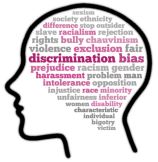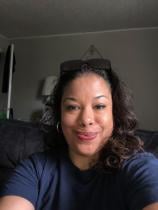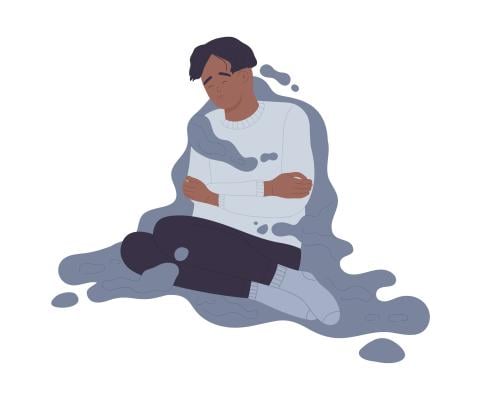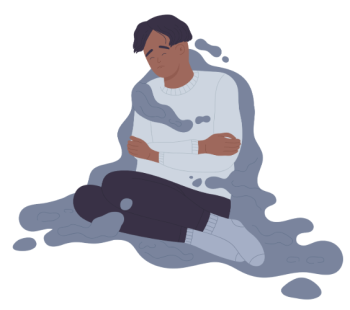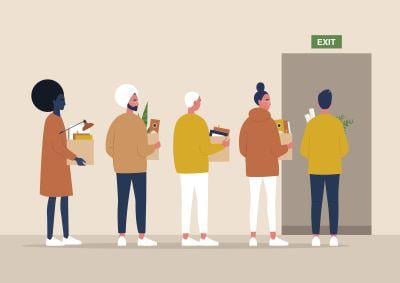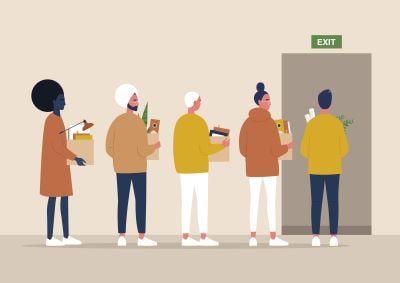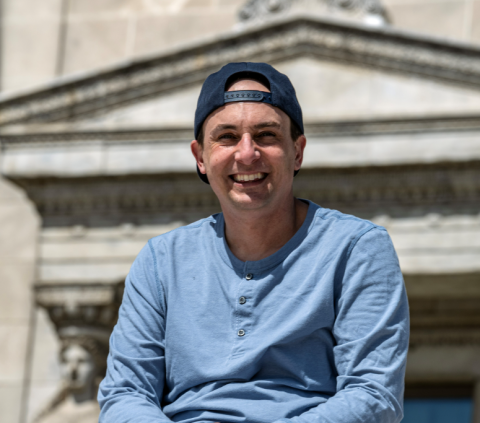A True American Dream: From Darkness to Light
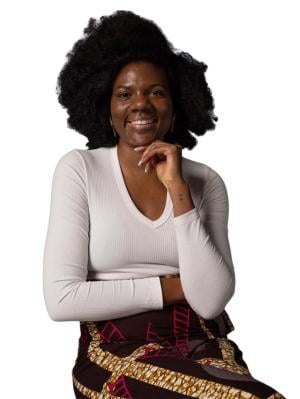
For most of my life, I thought I knew what happiness was. I believed in the recipe that society had laid out for me: get a good education, land a good job, buy a house, get married, have children, and boom—happiness would follow. So, I followed that script. Hard work, determination, and luck were supposed to guarantee success. But as I continued down this path, something didn’t add up. The math wasn’t mathing.
I thought that landing a job at one of the top accounting firms in the country would be my ticket to success. I believed I had it all figured out. Growing up in the hood, being the youngest child of a father who struggled with substance use disorder and multiple incarcerations, I was already at a disadvantage. But this was my chance to prove that I could fight against those odds and break the cycle. I had a plan: work hard to make it to senior associate, pass the CPA exam, make manager, and eventually, I’d be CFO at some big organization. That was the dream, right? I was part of an elite group now, grinding it out for 60+ hours during busy season, crossing over the holidays. But it didn’t last.
After just three years in the corporate world, the long hours, lack of diversity, and the oppressive atmosphere made me question everything. I felt invisible in a profession where I was constantly battling for recognition and advancement. So, I left for a less competitive role within the same profession. And then again, after another few years, I left that too. Eventually, after 15 years, my soul was worn out. I had already started showing signs of depression and anxiety, but I thought I could outsmart it. I thought if I just kept pushing forward, things would get better.
But I was wrong. I was burnt out and disenfranchised. I couldn’t figure out how to change careers after investing nearly 20 years into this “dream.” It was like I was stuck in a maze, endlessly going in circles, and I couldn’t find my way out. As the saying goes, doing the same thing over and over and expecting different results is the definition of insanity. I couldn’t keep going down this path.
One morning, I called out of work. “Hi Jen, I don’t think I’ll be able to make it today, I’m feeling under the weather.” But the truth was, I wasn’t just physically sick. I was mentally exhausted, confused, deflated, and scared. I spent that day in my room, overwhelmed by the weight of my emotions. Depression clouded my mind, and I started thinking that maybe the world would be better off without me. No one had ever prepared me for this. Mental health was never discussed with the compassion it deserved. It was always something to be ashamed of, something to hide. I reached out to a friend I respected. She seemed to have life figured out. She recommended some books on mental health, including The Four Agreements. I tried to read them, but when you’re in the middle of a depressive episode, books on healing can feel more like a burden than a help.
I started Googling ways to end my emotional pain. I wrote a letter to my family, hoping they would understand why I felt the way I did. The next day, there was a knock at my door. It was Sarah from the leasing office, asking if I was okay. I lied and said yes. But the second knock was louder. “Maryland Police,” they said. The police had been called to perform a wellness check. I opened the door, and soon I was in an ambulance, on my way to the emergency room. After meeting with a social worker and psychologist, I failed their mental health check and found myself with a one-way ticket to a local psychiatric ward.
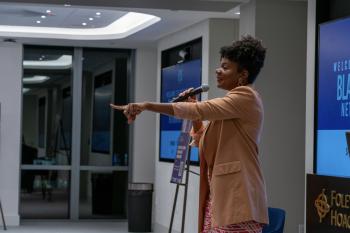
That was only the beginning. What followed was a year-and-a-half-long journey of self-discovery. With 60 percent of my salary and America’s best health insurance (Blue Cross Blue Shield), I had the privilege to unpack why I had gotten to that point. I started to understand how the societal assumption that having a good job would solve everything had misled me. I began to see how code-switching and toxic work environments had been major contributors to my depression and anxiety.
Ironically, both conditions drastically improved once I left corporate America. The hardest part of my journey was learning to give myself compassion. I had been so focused on achieving success in the eyes of others that I had neglected my own well-being. But as I started to heal, I began to see the value in creating my own path. I started to love myself and see my struggles as a necessary part of my journey—an opportunity to unlearn everything society had taught me about happiness. I was finally able to recreate my own
story.
After spending two weeks in a psychiatric ward, three weeks in group therapy, and four months in one-on-one therapy, I left my toxic work environment. That decision led me to a life where I could show up authentically for myself and others. I learned that wellness looks different for everyone. For me, it includes daily hour-long walks in the park and weekend yoga sessions. I had divorced my old life of chasing a corporate title and married my new life as the founder and CEO of PureSpark, a wellness organization dedicated to helping Black people in my community on their wellness journeys.
No one told me how hard it would be to become an entrepreneur, self-fund my business, and advocate for mental health, but I know this is the work I was always meant to do. It reminded me of a passion I had as a freshman in college: I wanted to be a therapist. Though that never happened, I’m grateful every day that I get to do this work that I’m so passionate about. I wake up excited to make a difference, to empower others, and to help my community heal.
It wasn’t the “American Dream” that saved me—it was finding my own path to happiness and fulfillment. I realized that the real dream isn’t about following a prescribed formula; it’s about charting your own course and living authentically. Now, I’m doing just that. And I’m proud of every step I’ve taken on this journey.
I chose to submit my story to ADAA because I deeply admire the organization's commitment to raising awareness and providing support for those struggling with anxiety and depression. As someone who has faced these challenges firsthand, I believe my experience can help reduce stigma and offer hope to others who may be going through similar struggles. I’m passionate about sharing my journey to encourage others to prioritize their mental health, seek help when needed, and ultimately, find their own path to healing.
- Share Your Story and Voice and Help #breakthestigma Around Mental Health
- Support ADAA's Mission - Every Gift Makes an Impact
- Join an ADAA Online Peer to Peer Support Community
- ADAA Find Your Therapist
